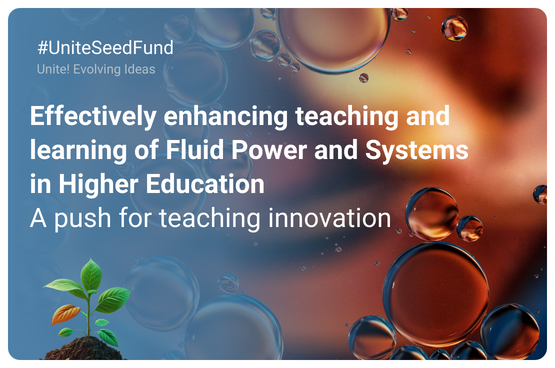
Unite! is working on innovation in the field of teaching Fluid Power and Systems in Higher Education.
The project, promoted by UPC professors and involving professors from the Aalto University, TU Darmstadt, and Wroclaw Tech, has received funding through the Unite! Seed Fund
Unite! has launched the project "Effectively enhancing teaching and learning of Fluid Power and Systems in Higher Education". Promoted at the UPC by professors Xavier Gamez and Miquel Torrent, from the Department of Fluid Mechanics, this teaching innovation project focuses on the development of appropriate teaching methods and approaches for this engineering discipline. The aim is to establish sustainable practices and promote the international exchange of knowledge and experience in this area of higher education. The initiative also involves faculty from three other member universities of the Unite! alliance: Aalto University (Finland); Technical University of Darmstadt (Germany) and Wroclaw University of Science and Technology (Poland). The Seed fund of the alliance has selected the proposal in its first round of funding among the projects submitted to the Unite! Seed fund for Teaching and Learning.
The project proposes to evaluate and make accessible the existing teaching offers at the European university level related to the teaching of fluid systems and fluid power. Application-oriented knowledge transfer is, according to the project promoters, more effective than the simple transmission of content knowledge through traditional lectures, computational exercises and textbooks. In this sense, the collaborative work aims to test, evaluate and make available existing application-oriented offerings. "We want to develop a common international understanding and establish a basis for a permanent exchange of knowledge and experience among teachers of these subjects," explains UPC professor Xavier Gamez.
Fluid power and fluid systems technology plays a crucial role in industrialisation and addresses contemporary challenges related to sustainable development, climate protection or biomedical engineering. These technologies are fundamental in various industries such as construction, transport, aerospace, agriculture and entertainment.
Its leaders have foreseen different tasks ranging from the evaluation of current teaching methods to the conceptualisation of educational materials that comply with FAIR principles (to make research data easy to find, accessible, interoperable and reusable) and material in Educational Open Resources (EOR).
They have also foreseen that "each participating Unite! institution will offer scholarships for undergraduate students participating in planned activities, ensuring their active participation in the improvement of teaching and learning," adds Gamez.

